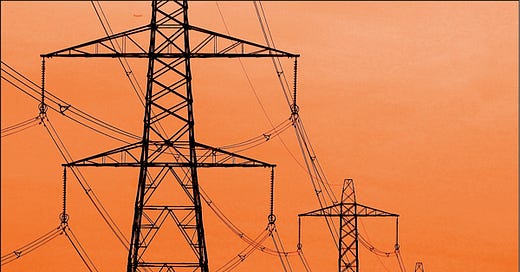"California Burning: The Fall Of Pacific Gas And Electric—And What It Means For America's Power Grid"
Biblio File column
"The Camp Fire started just three days after I joined The Wall Street Journal," writes energy reporter Katherine Blunt. Her award-winning articles form the basis of a measured, and yet devastating, history of PG&E.
"California Burning: The Fall Of Pacific Gas And Electric—And What It Means For America's Power Grid" ($29 in hardcover from Portfolio; also for Amazon Kindle) begins that fateful morning of November 8, 2018 and ends in Butte County Superior Court on June 16, 2020, with CEO Bill Johnson saying "Guilty, your honor" to each of 84 counts of involuntary manslaughter. (And, in an Epilogue, the Dixie Fire.)
In between, drawing on more than 200 interviews and thousands of pages of court and historical documents, Blunt pieces together not just the utility's origin story, but how its executives came to focus more on developing clean energy sources than on carefully inspecting and fixing gas pipelines and transmission towers deteriorating by the day.
The San Bruno pipeline explosion in 2010 revealed that PG&E had used the cheapest and least accurate safety testing of its gas lines. As Blunt notes, calling on the point made by San Bruno PD detective James Haggarty, "this was not a crime in which one person pulled the trigger. It was a crime committed slowly, over the course of decades, as corporate strategy shifted to prioritize shareholders, forcing middle-level employees to respond accordingly."
And so it was with the Caribou-Palermo transmission towers in the Feather River Canyon, constructed around 1907. In the investigation, Butte County DA Mike Ramsey and Deputy DA Marc Noel determined the hook that failed, leading to the spark that started the Camp Fire, "had been purchased for 56 cents in 1919."
The final part of the book details the maneuvering over the victims' compensation fund, and why so little has gone to those who were actually victims. In the midst of PG&E's second bankruptcy, the judged charged with approving the fund heard from victims. "They all agreed: $13.5 billion wasn't nearly enough if half of it depended on the company's share price."
A reporter tells the story of a "slow crime," dispassionately. And, somewhere, a reviewer weeps.
Copyright Chico Enterprise-Record; used by permission



